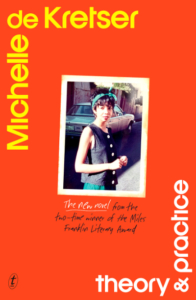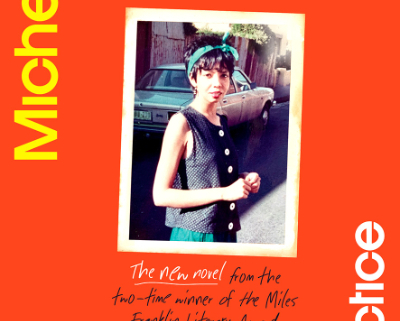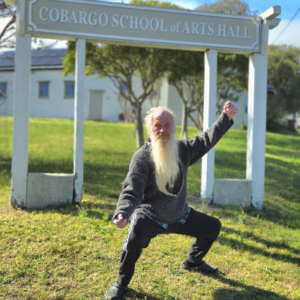Book review – Theory and Practice
 Theory and Practice
Theory and Practice
Michelle de Kretser
Text Publishing
Review by Wendy Tucker
This is Michelle de Kretser’s seventh novel and her second one to win the Stella Prize (for writing by women and non-binary authors). In this novel, de Kretser is again experimenting with form as she did in Scary Monsters where one story paralleled the other. I feel that this is primarily a novel with a splash of memoir and some thoughts on the theories of women’s writing that could be seen as a tilt into essay. The novel starts with the beginning of a story that the author decides is not the story that she needs to tell but, instead, she must tell one of personal truth.
De Kretser is a writer of great intelligence and multiple talents. Her extraordinary ability to create character is foremost throughout. Cindy, our protagonist and narrator, is a 24-year-old postgraduate Sri Lankan student who arrives in Melbourne from Sydney to do her Masters in English. She quickly becomes part of the 1986 bohemian St Kilda student life. She begins an affair with Kit, an engineering student, who is already in a deconstructed relationship with Olivia. De Kretser explores the gap between the narrator’s feminist principles, and how she behaves towards other women. Cindy deludes herself that she is not responsible for Olivia’s suffering and, as the affair progresses, feels intense, sexual jealousy, and fantasises about taking revenge on the other woman.
This begins De Kretser’s theme of how we abandon our ideals and moral principles for self-interest, how we abandon the political for the personal and how we deal with the gulf between shame and desire.
Cindy is doing her master’s thesis on Virginia Woolf. She has always admired Woolf’s groundbreaking work, her feminism and modernism. Now that she is reading Woolf’s diaries cracks begin to appear between Woolf’s theories, and her actual practice of racism, snobbery and antisemitism. Cindy begins to call Virginia Woolf the Woolfmother, and questions Woolf’s formative influence as a literary mother.
Cindy is also experiencing a reversal in the mother-daughter role as her widowed mother is becoming more dependent on her. Worried phone calls to Cindy, often upset the flow of Cindy’s life and work. As the daughter of immigrants, Cindy confronts the unfairness of the wealthy privilege and open doors enjoyed by her follow students. It appears colonialism is alive and well.
This is a short novel, but extraordinarily powerful in its telling of the messy gap and the breakdown between theory and practice in all of us.


